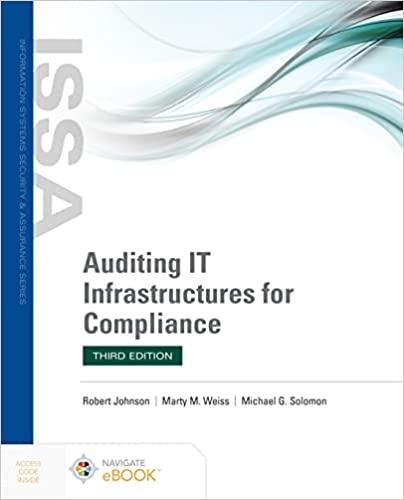Answered step by step
Verified Expert Solution
Question
1 Approved Answer
Business Law: 1) a) What is the legal issue and the Courts answer to the legal issue in Harold Lang Jewelers, Inc. v. Johnson? b)
Business Law:

1)
a) What is the legal issue and the Courts answer to the legal issue in Harold Lang Jewelers, Inc. v. Johnson?
b) What FACTS does the court use to support its answer to the legal issue?
c) How could Harold Lang Jewelers have conducted its business in North Carolina so as not to have to pay taxes to North Carolina?
Foreign Corporation 33-1 HAROLD LANG JEWELERS, INC. v. JOHNSON Court of Appeals of North Carolina, 2003 156 N.C App. 187, 576 SE.2d 360, review denied, 357 N.C 458, 585 SE.2d 765 http//scholar google.com/scholar case?case: 15826732712372931 150&q> 576+SE 2d-+360&hl en&as sdt 2,34 Hudson, weeks J during the summer months for the purpose of transact (Harold Lang Jewelers, Inc ("Lang")) filed suit alleging ing business. Sometime he came to North Carolina to transact that Johnson owed it $160,322.90 plus interest for jewelry business as often as three times a month. The court found that sold or consigned. Johnson answered that Lang could when the employee came to North Carolina, he always not sue in a North Carolina court because Lang had failed to brought jewelry with him for delivery. When he visited jewelry obtain a certificate of authority to transact business in the stores in the state, he would either (1) make a direct sale on [T]he district court granted the motion and dis the spot without any confirmation from any other person or state missed Lang's action. Lang now appeals entity in any other place or (2) consign the jewelry, also with out any further confirmation or approval from any other per Lang argues that the trial court did not find sufficient son or entity anywhere. When the employee took orders, he facts to support its conclusion that Lang was, in fact, trans either shipped the ordered items to the business in North Car olina or personally delivered the merchandise. He also took acting business in the state of North Carolina. returns of merchandise from customers in the state Our courts have interpreted transacting business in the In sum, we conclude that the trial court's conclusions of state to "require the engaging in, carrying on or exercising, in law are adequately supported b the facts found in this case North Carolina, some of the functions for which the corpora There is ample evidence that Lang's business in this state has tion was created." [Citation.] The business done by the corpo been regular, systematic, and extensive ration must be of such nature and character "as to warrant the Finally, Lang contends that the trial court erred when it inference that the corporation has subjected itself to the loca dismissed the action, arguing that the court should have con jurisdiction and is, by its duly authorized officers and agents tinued the case to permit Lang to obtain the requisite certifi present within the State." [Citation.] In other words, the activ of authority. The applicable N.C. statute, [citation], ities carried on by the corporation in North Carolina must be does not specify the procedure in the event of failure to substantial, continuous, systematic, and regular. [Citation.] obtain a certificate of authority. The statute simply indicates Here, the trial court concluded that Lang's business activity that an action cannot be maintained unless the certificate is in North Carolina was regular, continuous, and substantial obtained prior to trial. [Citation.] Lang has not cited, nor such that it was transacting business in the state. We uphold have we found, a case where a continuance has been granted this conclusion Citation. Specifically, the court found by a court in these circumstances. Moreover, Lang was aware that Lang, through its single employee, had sold and consigned that Johnson's motion was pending and could have obtained merchandise to jewelry stores in Franklin, Asheville, and th e certificate in the year and a half that passed between the Highlands, North Carolina, since 1970. The court also found filing of the motion and the court's dismissal of the case. set forth above, we affirm the decision of that Lang's employee came to North Carolina at least twice ev For the reasons ery six weeks during the year and at least twice every four the trial courtStep by Step Solution
There are 3 Steps involved in it
Step: 1

Get Instant Access to Expert-Tailored Solutions
See step-by-step solutions with expert insights and AI powered tools for academic success
Step: 2

Step: 3

Ace Your Homework with AI
Get the answers you need in no time with our AI-driven, step-by-step assistance
Get Started


